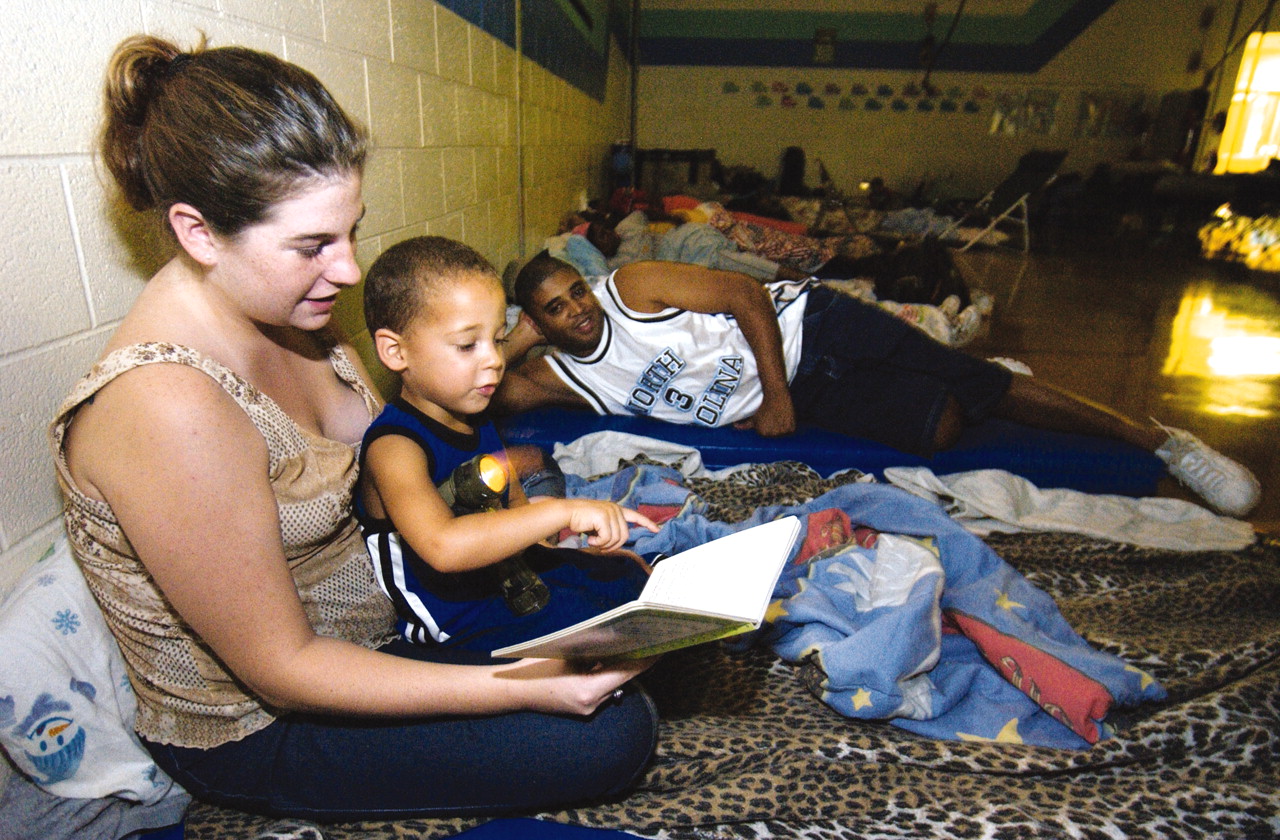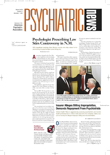Hurricane Isabel forced many residents into shelters throughout Virginia on the night of September 18. To conduct brief mental health interventions with the stricken population, several psychiatrists volunteered with the American Red Cross and its local chapters in Virginia.
Gabrielle Marzani-Nissen, M.D., a Spanish-speaking member of the Psychiatric Society of Virginia, was assigned by the local Red Cross chapter in Charlottesville to a nearby shelter with about 90 Spanish-speaking residents of a trailer park.
“From a mental health perspective, the relative stability of their community was dramatic. When there were shortages of infant formula or cots, they responded by sharing and sleeping on the floor,” Marzani-Nissen told Psychiatric News.
She found that residents were traumatized by the damage Isabel caused and embarrassed by having to seek public shelter.
“One family who owned livestock planned to stay home during the hurricane but left in a hurry when old trees began falling near their house and car. When I interviewed them, they were upset about leaving their animals alone. I helped them process what had happened so they wouldn’t become overwhelmed,” said Marzani-Nissen.
Three other psychiatrists including a psychiatry resident from Oregon Health Sciences University (OHSU) volunteered with the American Red Cross Disaster Mental Health Services in Washington, D.C.
Susan Hamilton, associate director of the American Red Cross Disaster Mental Health Services, coordinated their assignments. A few weeks earlier, Hamilton had spoken to APA’s Committee on Psychiatric Dimensions of Disasters about ways to interest more psychiatrists in volunteering with the American Red Cross (
see box).
Peter Morey, M.D., a third-year psychiatry resident from OHSU School of Medicine, went door to door in flooded neighborhoods of northern Virginia under the supervision of John Gergen, M.D., who is the former head of the department of psychiatry at the University of Illinois in Champaign and lives in Washington, D.C.
“When residents returned to their flooded homes or basements after being evacuated, it was the first time many had experienced the loss of property,” Morey said. Some people were having acute stress reactions, which he helped to de-escalate by giving reassurances that they were normal responses to disasters.
Morey was alerted by a neighbor about a woman who was having difficulty coping. “She wasn’t eating, was having nightmares, and had resumed smoking. She had a compulsive personality and was getting up before dawn to clean up her damaged property before going to work,” said Morey.
He talked with her for at least an hour. “I reassured her that her reactions were normal but emphasized that she also needed to take care of herself by taking a break and resting. She consented to having a professional from the community mental health center follow up with her,” said Morey.
Another woman with whom he talked had been diagnosed with bipolar disorder and had been stable on medication prior to Isabel. “She had experienced a series of traumatic incidents lately including being in a car accident. Isabel destroyed many of her prized possessions, which was upsetting.”
The woman was concerned that she was becoming symptomatic because she was feeling anxious and depressed. “I helped her distinguish between normal reactions to acute stress and symptoms of her bipolar disorder. I also emphasized the need to take a break and sleep,” said Morey.
He added that people with borderline personality traits often required brief interventions. “During the acute stage, they were calm and involved in helping their neighbors out. After the ‘honeymoon’ phase was over and disillusionment set in, their inner turmoil resurfaced and a brief visit was necessary,” said Morey.
He recommended that every psychiatrist volunteer with the Red Cross at least once. “Brief mental health interventions can have a positive impact upon the person and help prevent mental illness from developing,” he observed.
The American Red Cross’s standard two-day training was condensed into four hours for Morey and Lt. Col. Cameron Ritchie, a psychiatrist and another volunteer who was assigned to debrief Red Cross workers. “That was valuable because the Red Cross has its own way of doing things,” said Morey.
Pamela Edwards, M.D., an associate professor of psychiatry at OHSU and the district branch liaison to APA’s disaster committee, is collaborating with Hamilton on a possible didactic curriculum on disaster psychiatry for residents that would meet Red Cross training requirements so that residents can volunteer in the field with the American Red Cross.
American Red Cross disaster services and volunteer opportunities are posted on the Web at www.redcross.org/services/disaster/0,1082,0_319_,00.html. ▪

